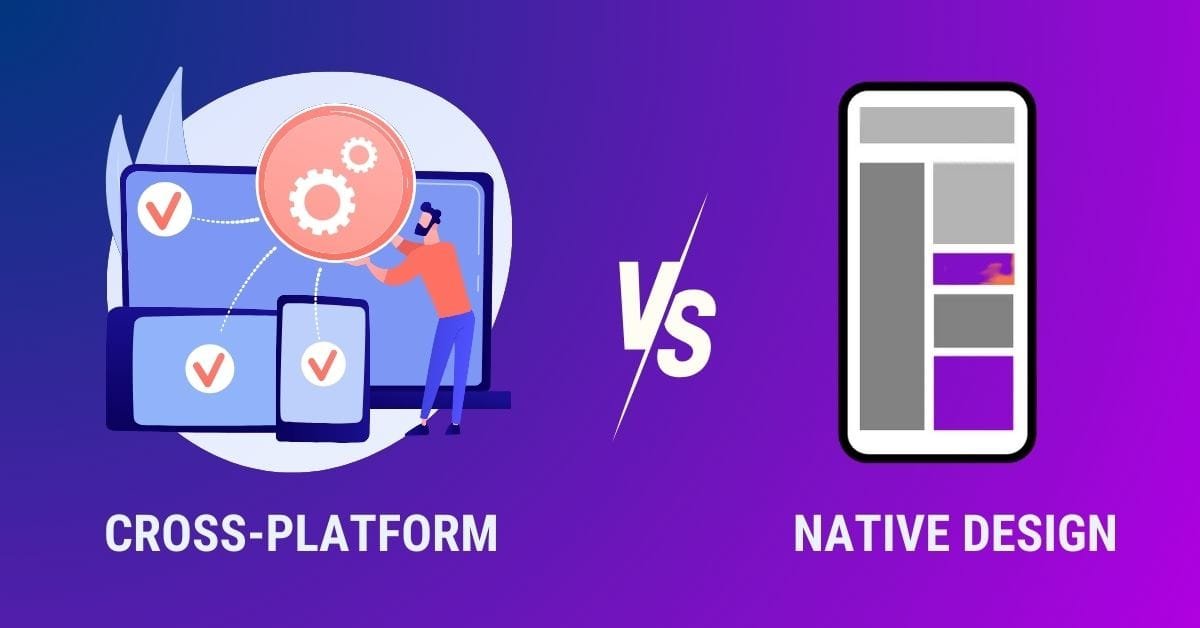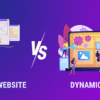In today’s mobile-first world, choosing the right approach for app development can make or break your project. Should you go with cross-platform or native development? Let’s dive into the nitty-gritty of both options to help you make an informed decision.
The Native App Approach: Tailored for Performance
Native apps are built specifically for a single platform, like iOS or Android, using the platform’s preferred programming languages and tools. Think Swift or Objective-C for iOS, and Java or Kotlin for Android.
Pros:
- Optimal Performance: Native apps can tap directly into the device’s hardware, resulting in blazing-fast speed and smooth user experiences.
- Full Feature Access: You get unfettered access to all of the device’s capabilities, from the camera to GPS and beyond.
- Polished Look and Feel: Native apps blend seamlessly with the platform’s design language, making users feel right at home.
- App Store Visibility: Native apps often have an easier time getting featured in app stores, potentially boosting your visibility.
Cons:
- Higher Development Costs: Building separate versions for each platform means more time, effort, and money.
- Maintenance Headaches: Updates and bug fixes need to be implemented and tested separately for each platform.
- Longer Time-to-Market: Developing multiple versions can significantly delay your app’s launch.
Cross-Platform Development: The Jack of All Trades
Cross-platform frameworks like React Native, Flutter, or Xamarin allow developers to write code once and deploy it across multiple platforms.
Pros:
- Cost-Effective: Develop once, deploy everywhere – a huge money-saver for businesses on a budget.
- Faster Development: With a single codebase, you can get your app to market quicker.
- Easier Maintenance: Updates and fixes can be implemented across all platforms simultaneously.
- Consistent User Experience: Your app will look and feel similar across devices, which can be great for brand consistency.
Cons:
- Performance Trade-offs: While getting better, cross-platform apps may not match the raw speed of native apps in all scenarios.
- Limited Access to Native Features: Some device-specific functionalities might be trickier to implement or require native code bridges.
- Platform-Specific Design Challenges: Creating an app that feels native on both iOS and Android can be a delicate balancing act.
Making the Right Choice for Your Project
Ultimately, the decision between cross-platform and native development depends on your specific needs:
- Budget Constraints: If you’re working with limited resources, cross-platform development can be a game-changer.
- Performance Requirements: For graphics-intensive apps or those requiring deep hardware integration, native might be the way to go.
- Time-to-Market: Need to launch quickly across multiple platforms? Cross-platform development could be your best bet.
- Long-term Maintenance: Consider how updates and ongoing support will impact your team’s workload.
- User Experience Priorities: If platform-specific design is crucial for your audience, native development might be worth the extra effort.
The Middle Ground: Hybrid Approaches
It’s worth noting that the line between native and cross-platform development is blurring. Some developers are adopting a hybrid approach, using cross-platform frameworks for most of the app while implementing performance-critical features natively.
Wrapping Up
There’s no one-size-fits-all answer in the native vs. cross-platform debate. By carefully considering your project’s unique requirements, target audience, and long-term goals, you can make an informed decision that sets your app up for success.
Remember, the mobile app landscape is constantly evolving. Stay curious, keep learning, and don’t be afraid to experiment with different approaches as new tools and frameworks emerge. If you’re looking for expert guidance on your mobile app development journey, consider reaching out to experienced professionals who can help you navigate these choices and bring your app idea to life.
Happy coding! And if you’re ready to take the next step, check out HV Infotech’s mobile app development services for tailored solutions to your app development needs.
















